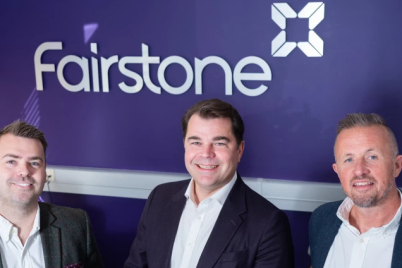A quiet scandal is the worst kind. That is what’s unfolding in Britain’s insolvency system and it is costing the public dearly.
When businesses collapse under the weight of debt, creditors expect at least a fair attempt at repayment. HMRC expects recovery of tax. Small suppliers expect their invoices to be met. Other affected parties expect apt legal and monetary recompense.
Yet increasingly what happens instead is that companies disappear, debts are written off, and almost immediately new ventures appear under different names but with the same families or other familiar faces holding control.
These so-called “connected companies” allow trade to continue almost uninterrupted while creditors are left with nothing more than paperwork confirming their loss.
The National Audit Office has estimated that tax evasion stripped £5.5 billion from the Treasury in 2022–23 alone, with around £500 million of that traceable to “connected companies” also known as “phoenix-style” activity. Parliament’s Public Accounts Committee has accused regulators of failing to shut down the loopholes that make such activity possible. The problem is not abstract. It translates into unpaid bills for tradespeople, shortfalls in local budgets, and higher demands on the taxpayer.
Nowhere is this pattern more vividly illustrated than in Nottinghamshire, where businesses linked to Surat “Sam” Sangha OBE have collapsed leaving close to £4 million in unpaid debt. HMRC having lost out the most.
Asiana Ltd, was quickly renamed Beijing Songyou Ltd shortly before liquidation. From its ashes, AAA Oriental Ltd emerged, carrying overlapping directors from the Sangha family.
Other companies, including Asiana Management Services LLP and 3HS Properties Limited, have raised further questions. Observers want to know whether assets or client relationships were moved across to successor firms without proper sale agreements, and whether funds from insolvent businesses may have been diverted into property interests before creditors could claim them.
Mercian Advisory, the liquidator charged with untangling these affairs, has reportedly faced repeated frustration in obtaining full cooperation from the family. That lack of disclosure has slowed efforts to establish whether undervalue transfers occurred or whether creditors have been denied what should rightfully have been recovered.
Following a request for further comment from the Midlands Gazette, Mercian Advisory said “We do not feel it is appropriate to consider disclosing any specific information that may prejudice our enquiries and potential recoveries. We shall of course report to creditors at the appropriate juncture.”
The law is not silent on these matters. Both the Insolvency Act 1986 and the Companies Act 2006 define “connected companies” through shared directors or controllers. The courts, in cases such as Re MC Bacon Ltd, Phillips v Brewin Dolphin and Re Hydrodan (Corby) Ltd, have repeatedly stated that it is the reality of actual control that matters, not well punctuated and tidy paperwork.
Liquidators are duty-bound under the Company Directors Disqualification Act 1986 to report misconduct, including obstruction and concealment. In principle the framework is strong. In practice it is damaged when disclosure is delayed, when families know precisely how to exploit procedural gaps, and when enforcement resources are overstretched. The gap between law and enforcement is where phoenix activity thrives.
In the Sangha case there is another layer of public interest. The title OBE carries an expectation of integrity. When Sir Jack Lyons, once lauded for philanthropy, was implicated in the Guinness share-trading scandal, his knighthood was revoked. The decision demonstrated that honours are conditional on ongoing conduct. If ‘honourable’ directors preside over corporate failures that leave millions unpaid, including debts to the public purse, scrutiny will follow. Questions about whether honours should be rescinded do not arise from pettiness or jealousy. They come the idea that regal recognition demands not only accomplishments, but also accountability.
Phoenix activity is a UK-wide issue. Neville Taylor repeatedly undermined the insolvency system through a web of more than 400 connected companies. His ‘employer’ was Atherton Corporate who directed him to become the replacement for directors of 12 different companies that had ceased trading but had not yet begun liquidation.
By the time regulators acted he had left £7.6 million in missing assets in his wake. He was banned as a director for nine years, a decisive punishment but one that came after the damage was already done. Clearly when the Insolvency Service and the courts do act, they have the power to enforce meaningful consequences. It also proves that decisive action is still too rare. For every Taylor there are dozens of directors and families slipping through cracks in enforcement, repeating the cycle and leaving ordinary creditors and HMRC to bear the loss.
The solution does not require reinvention of the law. It requires a change in application. Liquidators must be supported when they meet obstruction. Speed and decisiveness must be the watchwords of the Insolvency Service when against families who obfuscates assets beyond reach. Companies House needs stronger oversight of re-namings and overlapping directors. Patterns must be tagged and flagged before damage spreads.
HMRC itself must make recovery of phoenix-related debts a priority, because every lost pound must be made up elsewhere, either by borrowing or by squeezing taxpayers further. Without that effort, the system actively rewards bad behaviour while punishing the honest. The government cannot continue privatising gains while socialising losses.
The wider picture is stark. Each year HMRC loses half a billion pounds to phoenix activity, and the total burden of tax evasion has reached £5.5 billion. Directors who obstruct liquidators can be disqualified for up to fifteen years.
When honours holders fall short of integrity, titles can be rescinded, as Lyons’ downfall showed. These are not theoretical points. They are precedents. And they remind us that both the law and the honours system ultimately depend on the credibility of enforcement.
In Nottinghamshire, with the Sangha case, the question is whether that credibility will be defended, or whether the public will have to keep bearing the burden of costs criminals choose to make them pay.










